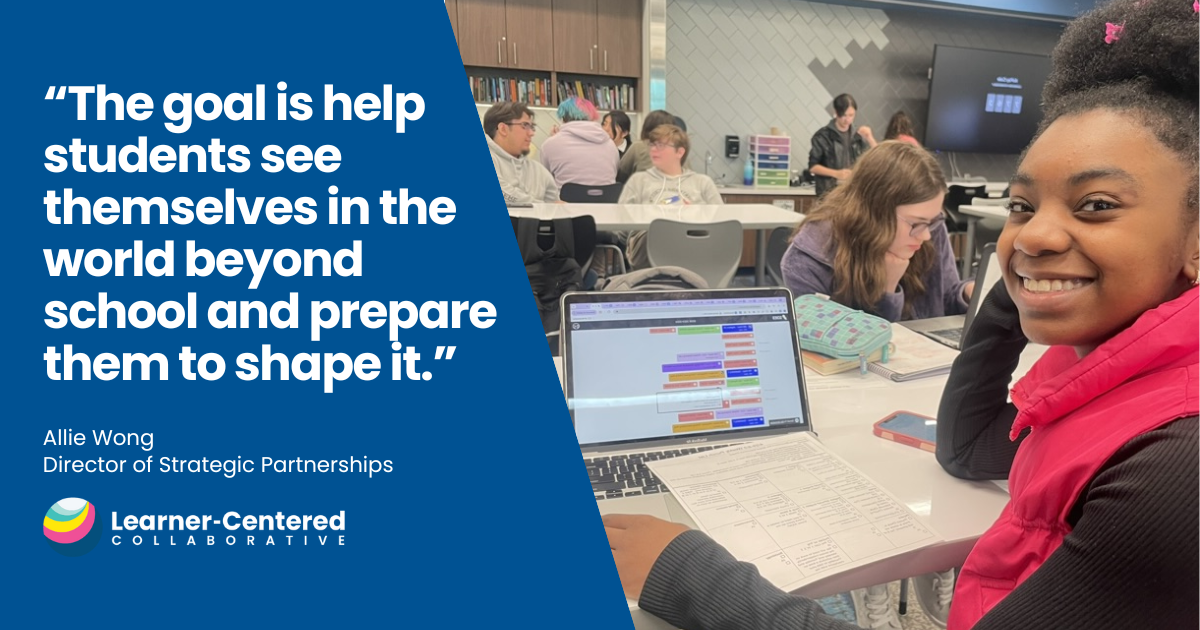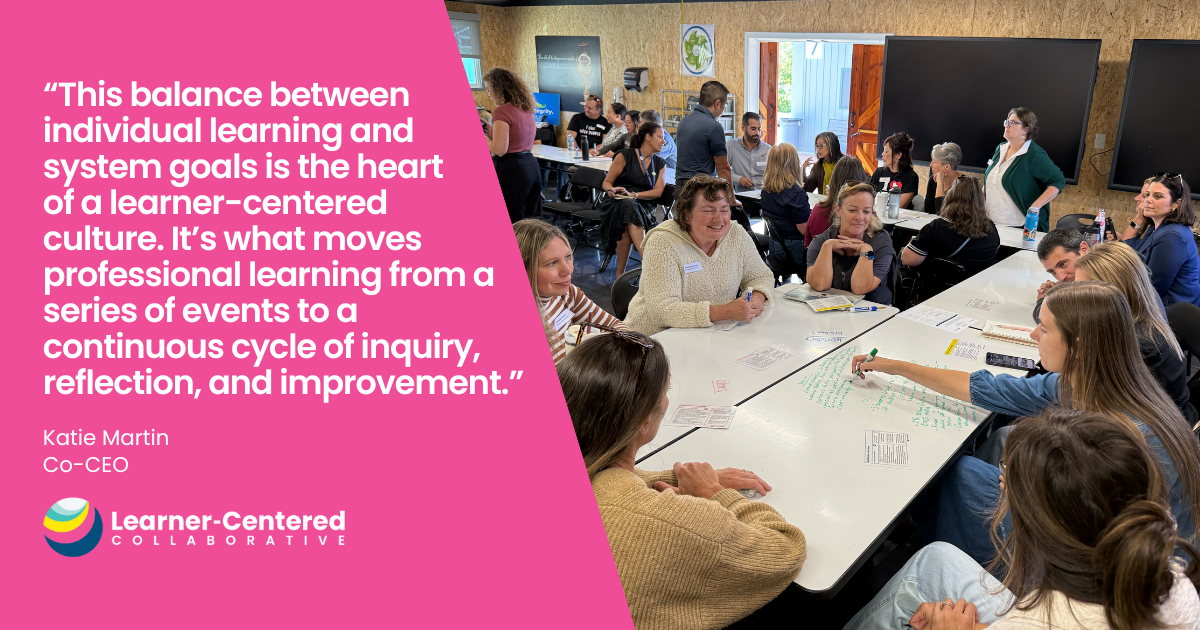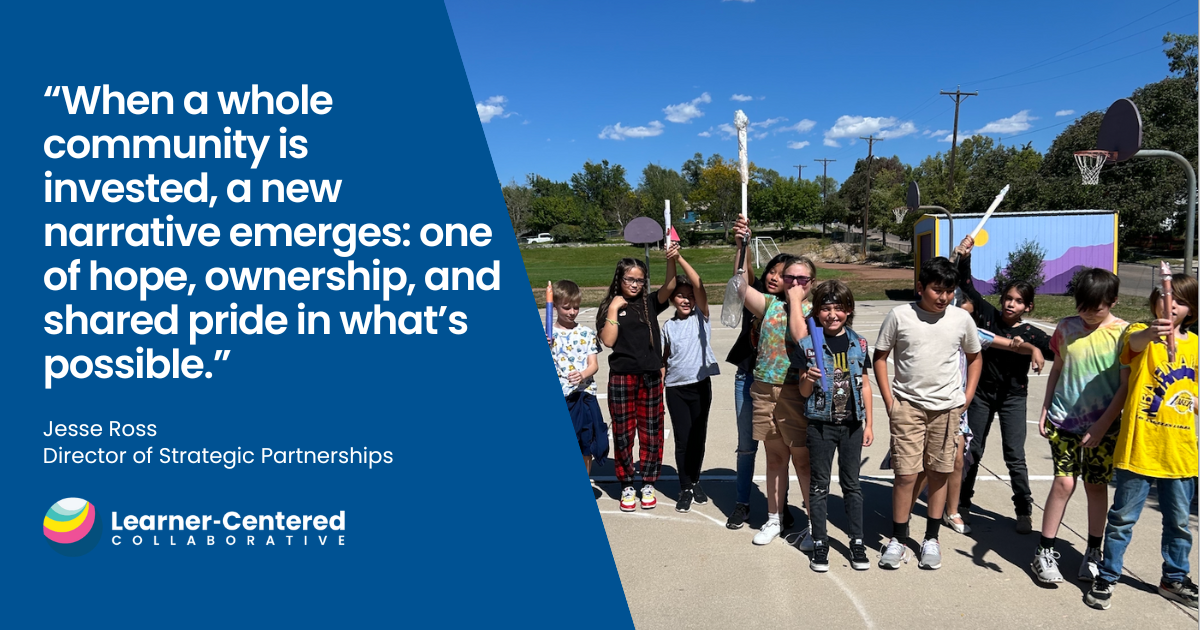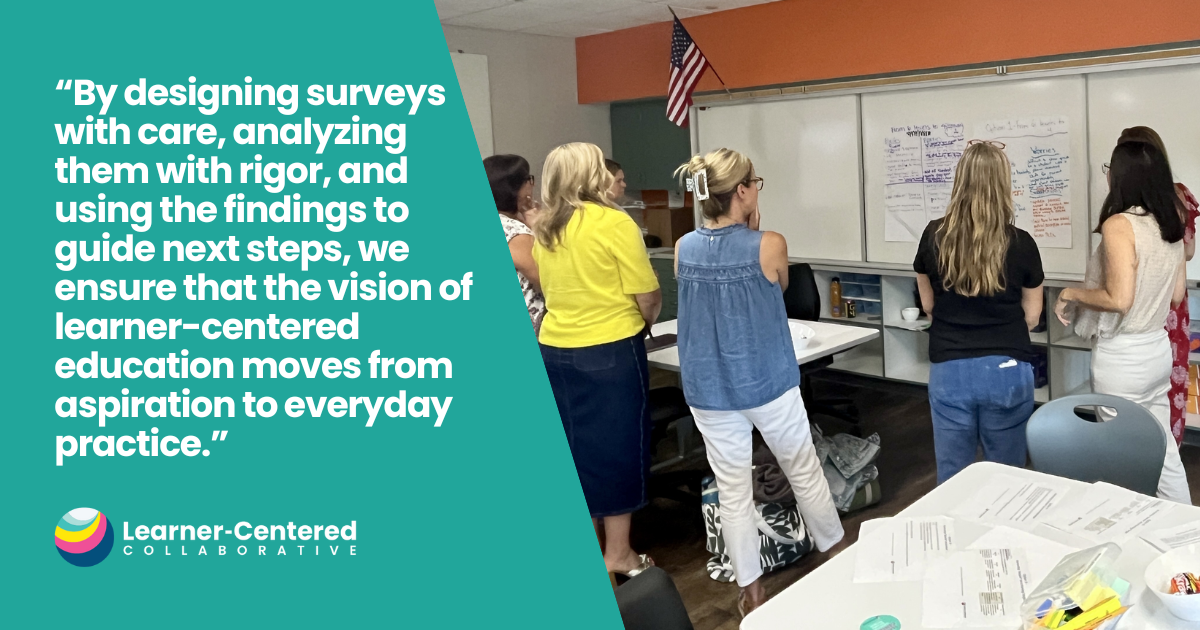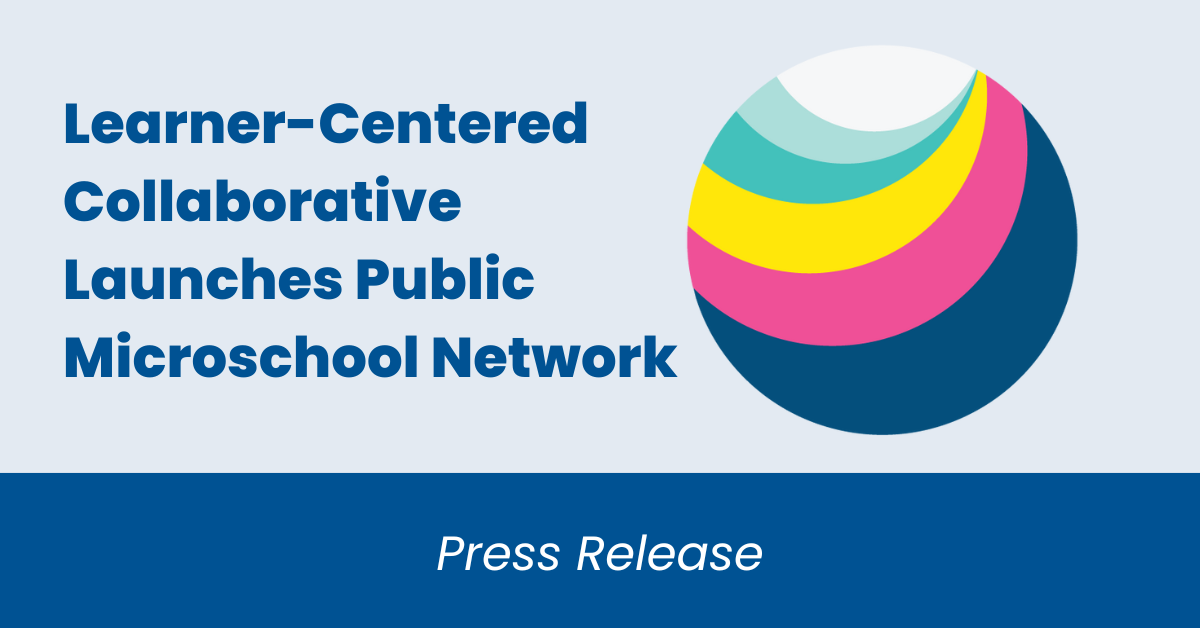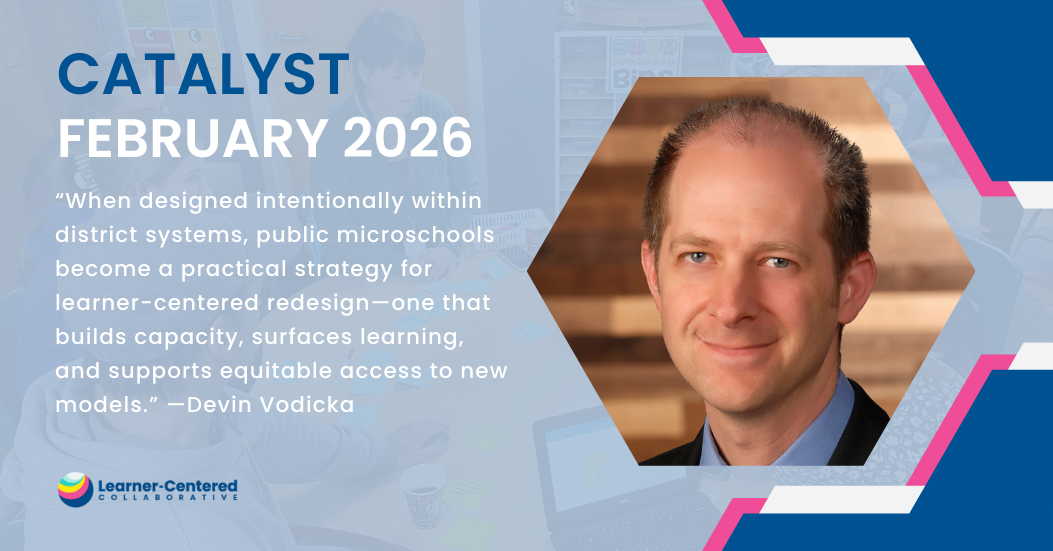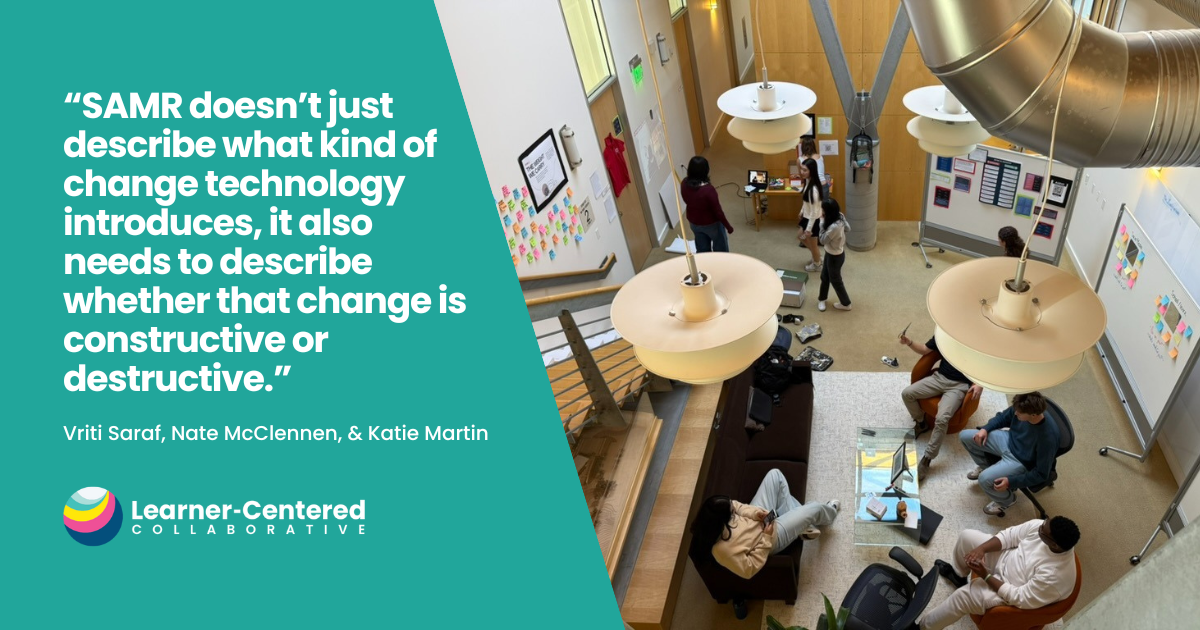Education is Everyone’s Business: Bridging the Gap Between School and Learning for Success in Life
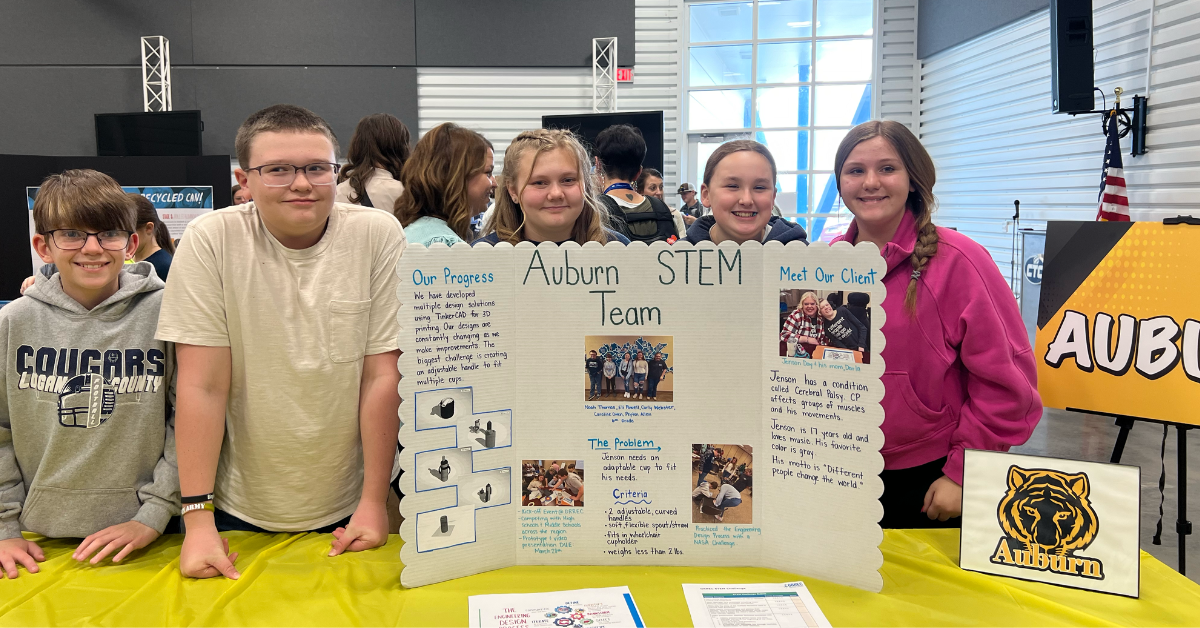
Every educator I have ever met wants their students to be successful. The challenge, however, is that we don’t all share the same definition of success. Some educators narrow it to their specific standards, their class, or their personal view of what it means to be successful. Others focus on what they believe students need for the next grade level, while some look toward college and career readiness. However, in today’s rapidly evolving world, it is critical that we look beyond the confines of our schools and our own experiences. We must ensure our view of success aligns with the realities of our world and the future where our students will live, work, and learn.
Learner-Centered Collaborative has been actively engaging with school systems nationwide. This year, we have been working closely with district teams from around the country through our inaugural Connections Cohort. The cohort has visited innovative schools across the nation and collaborated with industry partners to gain a deeper understanding of the current world of work. Through these interactions, we have gained valuable insights into what employers are looking for in their future employees and how school systems are evolving to meet these needs.
Setting Learners Up for Success in School and Beyond
In our most recent Connections convening, we had the opportunity to engage with industry partners at the Nashville Chamber of Commerce. These partners emphasized that successful candidates must possess not only academic qualifications but also a diverse set of skills that enable them to tackle complex problems, collaborate effectively in teams, continuously learn and adapt, and demonstrate resilience in the face of adversity. The qualities they sought, such as critical thinking, effective communication, teamwork, and adaptability, closely reflected the demands of today’s rapidly evolving workplaces.
We also delved into how these industry partners are actively collaborating with schools across the Nashville Metro area to provide valuable learning experiences. These partnerships include initiatives such as the New Skills Ready Work-Based Learning Pilot program, where 15 business partners hosted 68 high school students as employees, providing them with real-world experience and skills aligned to their future professions. Another notable example is the Academies of Nashville, which brings together over 400 business and community partners to offer students industry exposure, career-aligned experiences, and valuable credentials through 450+ partnerships. This proactive approach bridges the gap between high school and high-demand, high-skill careers in Tennessee, providing students with real-world experience and skills aligned to their future professions.
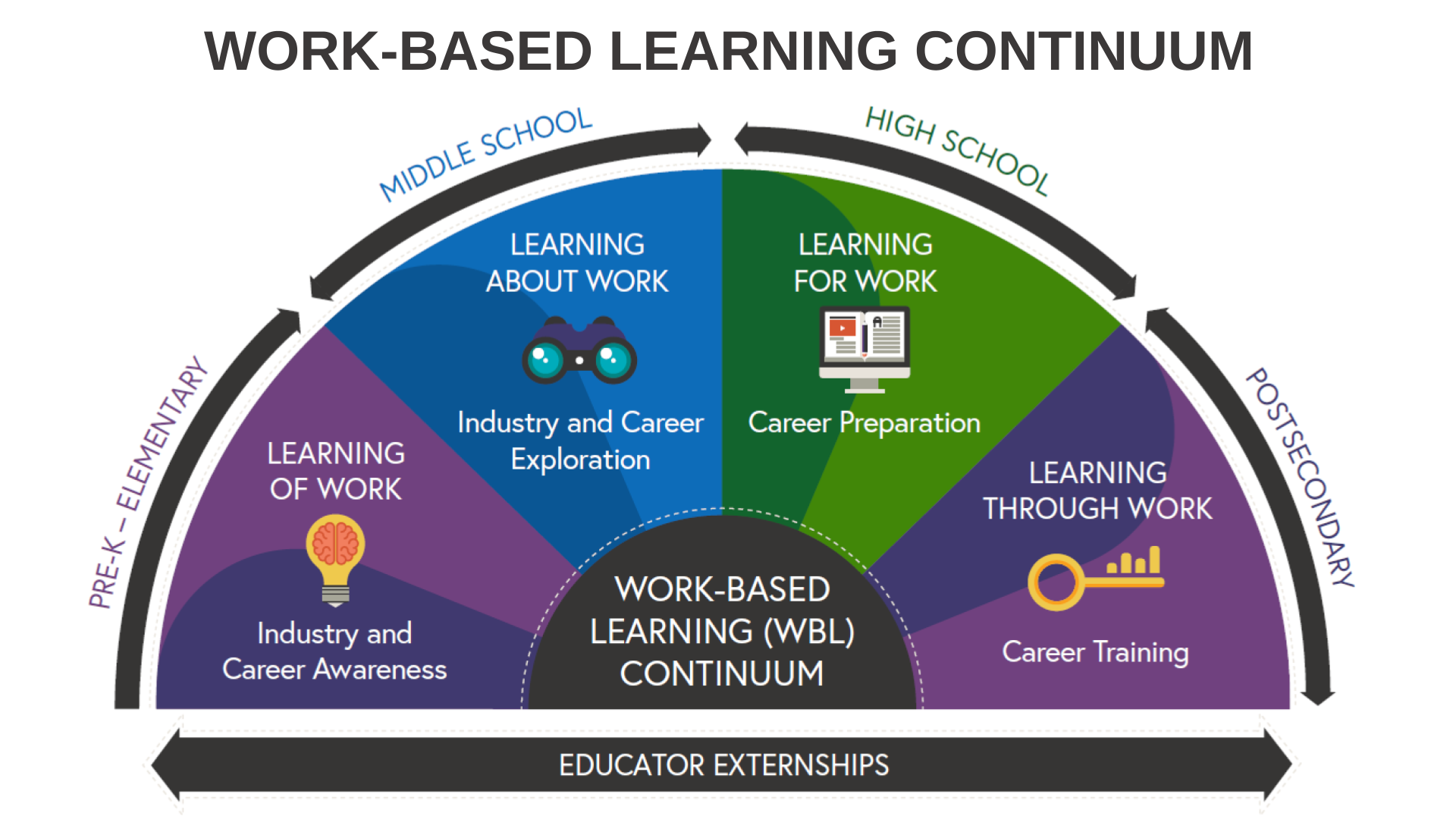
What stood out was the extensive collaboration and multi-level support required to make these partnerships successful. The school district, industry partners, the Chamber of Commerce, and local non-profits are working together to create an ecosystem that offers robust learning opportunities for learners, impacting their journey from K-12 to their careers. As one industry partner shared, “Education is everyone’s business!” Industry partners play a crucial role in helping K-12 educators understand the future of work and fostering the development of critical skills early on. Simultaneously, K-12 educators must proactively identify the necessary skills and align their teaching practices accordingly. To effectively prepare learners for success, industry and education must break down silos and work collaboratively toward a shared vision.
Logan County’s Approach to Educating (and Assessing the Whole Child)
Our second visit was to Logan County Schools in Kentucky, bordering Tennessee. Over the last five years, the district has focused on bringing its Profile of Success to life, ensuring they develop the skills that the community and industry partners deemed most critical for success. In Logan County schools, students are immersed in an authentic and relevant learning environment that prioritizes not only academic excellence but also the cultivation of skills and mindsets essential for success beyond the classroom.
During our visit, we had the opportunity to attend an exhibition of learning where students showcased their accomplishments. They presented their business ventures, complete with profit margins, and shared their inquiry-based and community service projects. Students confidently defended their learning to teachers, families, and community members. It was evident that the learning experiences in Logan County are designed to be authentic, relevant, and engaging, helping students navigate their path both in school and in the future. As Cle, a student in Logan County, shared, “I want to be a lineman because I want to be of service to my community and it is something I would enjoy.” He confidently cited his RIASEC codes, which identified him as realistic and conventional, demonstrating how the district’s approach helps students connect their strengths and passions with potential career paths.
The Shift Towards Educating the Whole Child
Across the education landscape, there’s a growing consensus on the importance of comprehensive learning. Conversations are increasingly focusing on the need to teach and assess not only academic standards but also the lifelong skills essential for success. This shift towards holistic education recognizes the significance of addressing the needs of the whole child, including their social and emotional well-being.
However, amidst this shift, it is crucial to be mindful of the temptation to continually add more to the curriculum. The key lies in making intentional choices that align with our vision and values. Rather than overburdening students with endless tasks and assessments, we must prioritize what truly matters and integrate these values into our educational practices.
Our visits to Logan County and the Nashville Chamber of Commerce reinforced the notion that education is indeed everyone’s business. From industry partners to educators, parents, and policymakers, we all have a role to play in shaping the future of our education system. By bridging the gap between academics and lifelong skills, we can better prepare our students for success in both their academic endeavors and their future careers. Let’s work together to transform education, moving beyond mere schooling, to equipping our youth with the tools they need to thrive in an ever-changing world. It is through collaboration and a shared vision that we can create an educational system that truly serves the needs of the whole child.
Want to join an innovative cohort of educators and attend immersive school and industry visits? Learn More About Joining Learner-Centered Connections.
